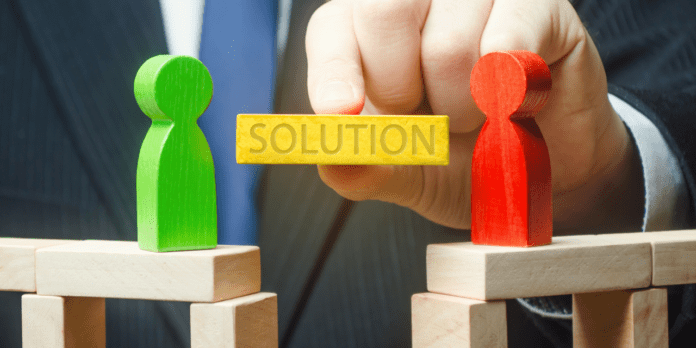Conflict happens all the time, whether we like it or not. It can stem from different sources, such as miscommunication, incompatible expectations, or personality differences. When conflicts arise, our natural instinct may be to confront the issue head-on. But have you ever considered another approach – one that promotes collaboration and compromise instead of confrontation? Let me introduce you to mediation, which could provide tremendous benefits to your personal and professional lives.
Mediation and How It Works
Mediation is a form of alternative dispute resolution in which a trained and impartial third-party mediator facilitates communication between disputing parties. The mediator facilitates the conversation and helps the parties to identify issues and develop options for resolving their conflict. It is a voluntary process, and the mediator does not make any decisions for the parties involved.
The mediator helps each party to understand the other’s perspective, identify the underlying issues, and work collaboratively to find a solution that meets everyone’s needs. The process can be used in many different situations, including family disputes, workplace conflicts, and community disputes.
The Role of a Mediator

A mediator is a neutral third party who facilitates communication between the parties in conflict. A mediator is not a judge, and they do not make decisions for the parties involved.
The mediator’s role is to help the parties to communicate effectively, identify the underlying issues that are causing the conflict, and develop options for resolving the dispute. Mediators do not take sides or favor one party over the other. They are there to help the parties involved to find a mutually acceptable solution.
If you are experiencing conflicts at work or at home, consider using mediation to resolve the issue. Mediation can help to maintain relationships, improve communication, and find a solution that meets the needs of everyone involved. Contact a mediator in your area to learn more about the benefits of mediation.
Top Reasons to Use Mediation
1. Cost-Effective: Legal proceedings can be expensive and exhausting. Mediation is a cost-effective way to resolve conflicts, especially when compared to litigation. Mediation eliminates the need for lawyers and other legal professionals, cutting down the overall cost by a significant margin. It saves both time and money, and the parties involved can get back to their regular lives quickly.
2. Confidentiality: Mediation is a private process, which means that the discussions and agreements reached during mediation sessions are confidential. The parties involved can discuss sensitive or personal matters without any fear of public scrutiny. It helps to maintain privacy and dignity while resolving the conflict.
3. Control: In mediation, the parties involved have more control over the outcome of the dispute. They can identify and discuss their individual concerns, feelings, and emotions, and come up with solutions that work best for them. Mediation sessions are voluntary, and the parties involved can walk away from the process anytime if they feel uncomfortable with any aspect of it.
4. Preservation of Relationships: Conflicts can take a toll on relationships, both personal and professional. Mediation aims to preserve the relationship between the parties involved by finding solutions that address the root cause of the dispute. It helps to build trust and understanding between the parties involved, facilitating a positive and cooperative environment even after the conclusion of the process.
5. A Win-Win Solution: Finally, mediation aims at finding a win-win solution that benefits both parties involved. It encourages collaboration, creativity, and mutual understanding. The parties involved can come up with a solution that addresses the concerns of both parties without harming any individual’s interests. Mediation helps to create a positive outcome by finding common ground between the parties involved.

If you are experiencing conflicts at work or at home, consider using mediation to resolve the issue. Mediation can help to maintain relationships, improve communication, and find a solution that meets the needs of everyone involved. Contact a mediator in your area to learn more about the benefits of mediation.




